INTERNATIONAL BACCALAUREATE
AT IVANHOE GRAMMAR SCHOOL
An introduction to the International Baccalaureate Diploma Program for students and families
2025 - 2026
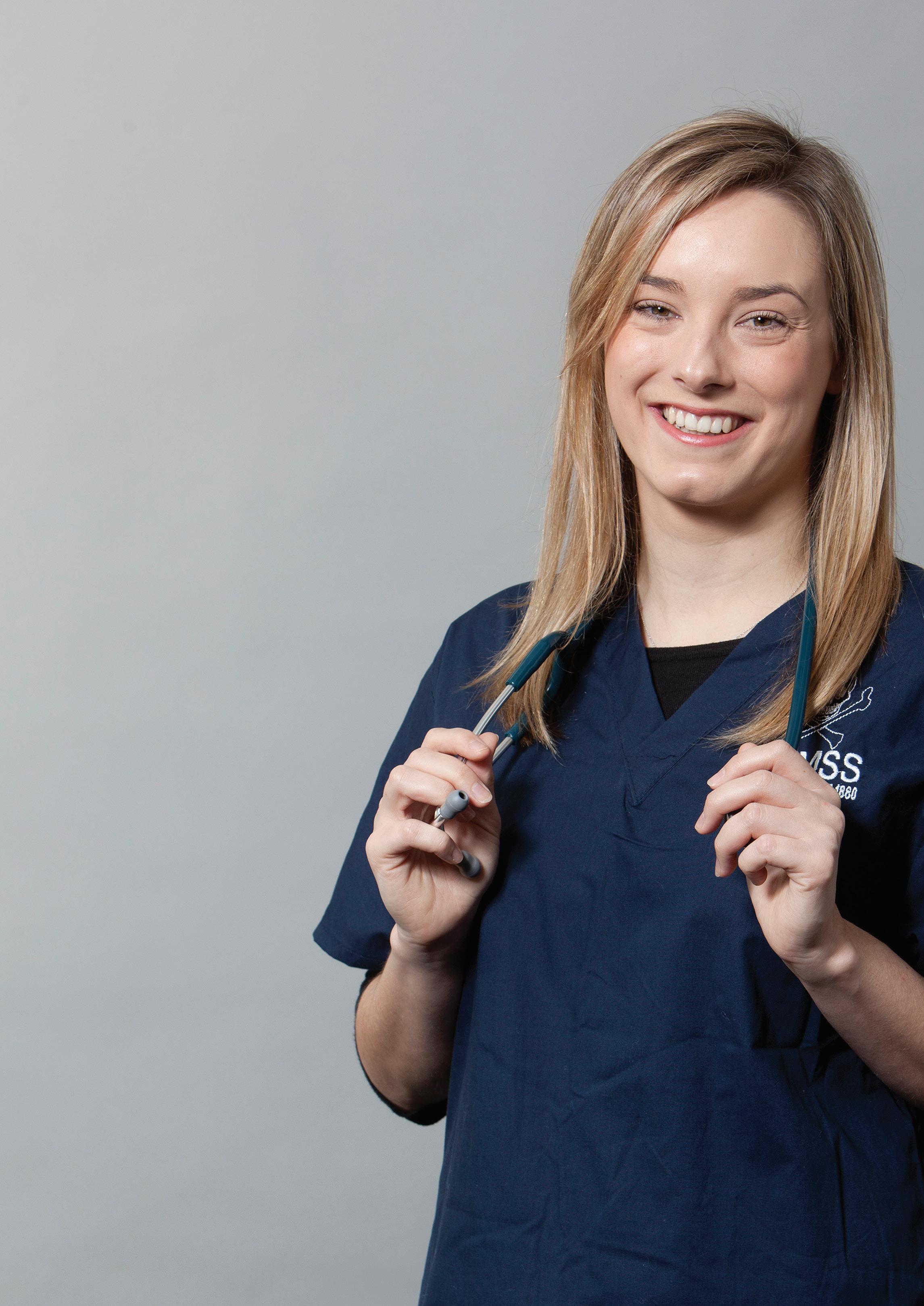
The International Baccalaureate Diploma Program can challenge, discipline and motivate you.
It provides you with the tools to be best prepared for tertiary studies anywhere in the world.

Contents IB Learner Profile 4 The International Baccalaureate (IB) Organisation 5 Introduction 6 Subject Groups Should you undertake the IB? Achievement of the IB Diploma IB Diploma Model Theory of Knowledge (ToK) 7 Extended Essay (EE) Creativity, Activity, Service (CAS) Advice from Ivanhoe Grammar School IB Diploma IB Students 8 IB Diploma Subjects offered for 2025 - 2026 10 How is work assessed? 11 University Options and Pathways 12 The Fine-Grained ATAR Calculation The Proposed Fine-Grained ATAR 12-13 Class of 2023 IB Results 14 Alumni Profiles 15 Parent Perspectives 18 Frequently Asked Questions 20 Notes 21
IB learner profile

The aim of all IB programmes is to develop internationally minded people who, recognizing their common humanity and shared guardianship of the planet, help to create a better and more peaceful world.
As IB learners we strive to be:
We nurture our curiosity, developing skills for inquiry and research. We know how to learn independently and with others. We learn with enthusiasm and sustain our love of learning throughout life.
We develop and use conceptual understanding, exploring knowledge across a range of disciplines. We engage with issues and ideas that have local and global signi cance.
We use critical and creative thinking skills to analyse and take responsible action on complex problems. We exercise initiative in making reasoned, ethical decisions.
We express ourselves con dently and creatively in more than one language and in many ways. We collaborate e ectively, listening carefully to the perspectives of other individuals and groups.
We act with integrity and honesty, with a strong sense of fairness and justice, and with respect for the dignity and rights of people everywhere. We take responsibility for our actions and their consequences.
We critically appreciate our own cultures and personal histories, as well as the values and traditions of others. We seek and evaluate a range of points of view, and we are willing to grow from the experience.
We show empathy, compassion and respect. We have a commitment to service, and we act to make a positive di erence in the lives of others and in the world around us.
We approach uncertainty with forethought and determination; we work independently and cooperatively to explore new ideas and innovative strategies. We are resourceful and resilient in the face of challenges and change.
We understand the importance of balancing di erent aspects of our lives intellectual, physical, and emotional to achieve well-being for ourselves and others. We recognize our interdependence with other people and with the world in which we live.
We thoughtfully consider the world and our own ideas and experience. We work to understand our strengths and weaknesses in order to support our learning and personal development.
The IB learner pro le represents 10 attributes valued by IB World Schools. We believe these attributes, and others like them, can help individuals and groups become responsible members of local, national and global communities.
IVANHOE GRAMMAR SCHOOL 4
IB learner profile IB learner profile IB learner IB learner profile IB learner profile IB learner IB learner profile IB learner profile IB learner profile learner IB learner profile
IB learner profile
3
profile
profile
The International Baccalaureate Organisation
International Baccalaureate (IB) Mission Statement
The IB aims to develop inquiring, knowledgeable and caring young people who help to create a better and more peaceful world through intercultural understanding and respect.
To this end the organisation works with schools, governments and international organisations to develop challenging programs of international education and rigorous assessment.
These programs encourage students across the world to become active, compassionate and lifelong learners who understand that other people, with their differences, can also be right.
The IB and international-mindedness
The aim of all IB programs is to develop internationally-minded people who recognise their common humanity and shared guardianship of the planet. Central to this aim is internationalmindedness.
The IB fosters international-mindedness by:
• Capturing a way of thinking, being and acting that is characterised by an openness to the world and a recognition of one’s deep interconnectedness to others.
• Empowering students to recognise and respond in appropriate ways to the inherent complexity of the world around them.
• Providing students with opportunities for sustained inquiry into a range of local and global issues and ideas.
• Helping students reflect on their own perspective, culture and identities, and then on those of others.
• Learning to appreciate different beliefs, values and experiences, and to think and collaborate across cultures and disciplines.
• Gaining an understanding necessary to make progress toward a more peaceful and sustainable world.
• Requiring students to study, or study in, more than one language to develop intercultural understanding and respect. This helps students appreciate that his or her own language, culture and worldview is just one of many.
• Challenging students to critically consider power and privilege, and to recognise that he or she holds this planet and its resources in trust for future generations.
• Moving beyond awareness and understanding to engagement, action and bringing about meaningful change.
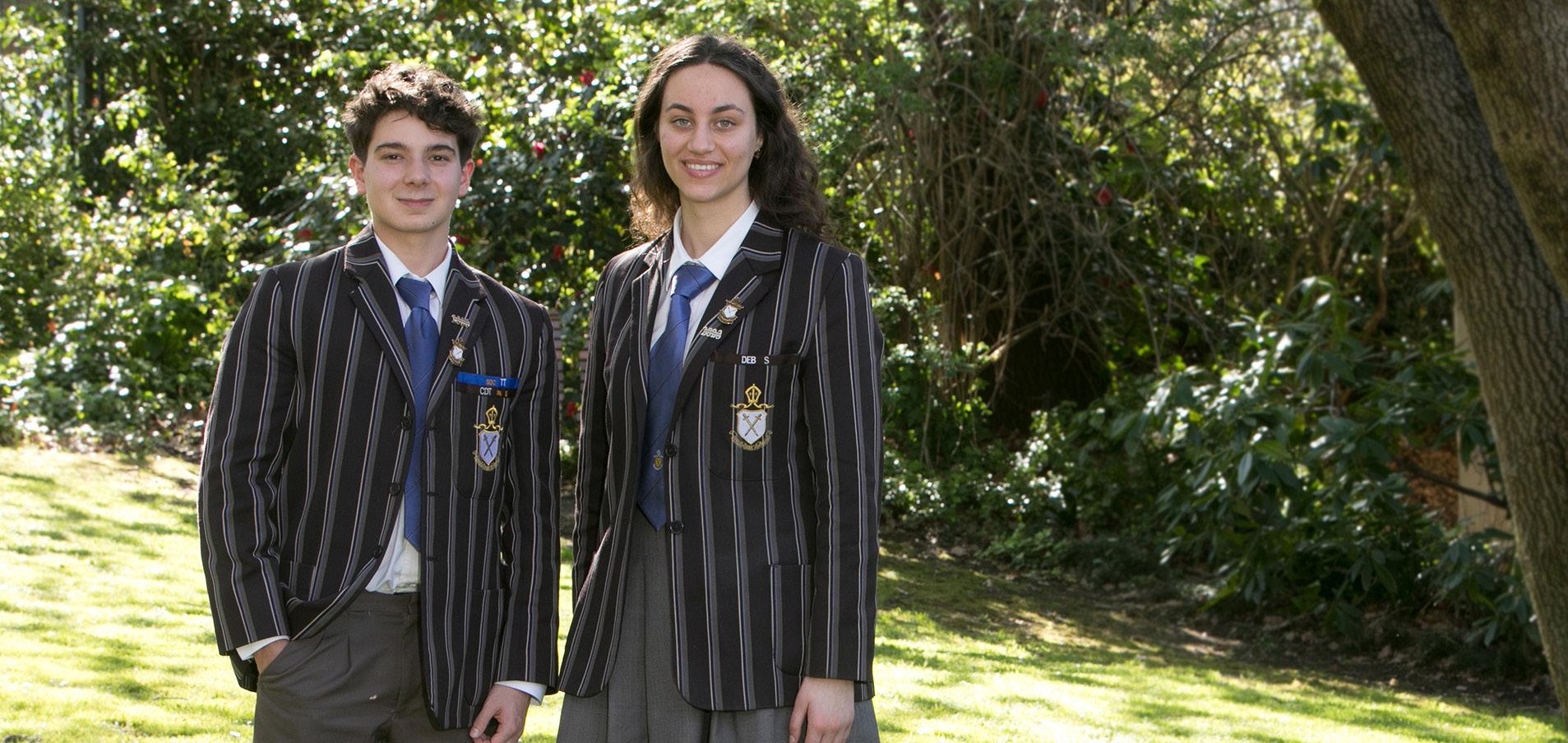
INTERNATIONAL BACCALAUREATE HANDBOOK 5
Introduction
The IB Diploma is a two-year program to be completed in the final years of secondary schooling, and aims to prepare students for university study and global citizenship better than any other certificate.
The curriculum consists of six subject groups and the three elements of the IB Diploma Program core.
IB Diploma Program subject groups:
• Group 1: Studies in Language and Literature
• Group 2: Language Acquisition
• Group 3: Individuals and Society
• Group 4: Sciences
• Group 5: Mathematics
• Group 6: The Arts
IB Diploma Program core:
• Theory of Knowledge
• Extended Essay
• Creativity, Activity, Service
The IB Diploma Program is a broad and balanced, yet academically demanding, program of study that promotes the development of:
• Critical-thinking and reflective skills
• Research skills
• Independent learning skills
• Intercultural understanding
Students who are awarded the IB Diploma have demonstrated a strong commitment to learning, both in terms of the mastery of the subject content and in the development of the skills and discipline necessary for success in a competitive world.
Should you undertake the IB Diploma at Ivanhoe Grammar School?
If you wish to study at a university and you are interested in:
• Being prepared in the best possible way for success in your university course
• A comprehensive curriculum
• A curriculum recognised locally, nationally and throughout the world for both breadth and depth in academic studies
• Reading and writing and can do both to a high standard
• Activities that encourage a sense of adventure, selfdiscipline and social responsibility
…then the answer to the question is YES, the IB Diploma at Ivanhoe Grammar School is for you!
Achievement of the IB Diploma
To be eligible for the award of the IB Diploma, students have to:
• Choose one subject from each of the five groups (1 to 5) to ensure breadth of knowledge and understanding in Studies in Language & Literature (Group 1), Language Acquisition, (Group 2), Individuals & Societies (Group 3), Sciences (Group 4) and Mathematics (Group 5). Students may choose either a subject from The Arts (Group 6) or a second subject; IGS students usually choose another subject from Group 3 or Group 4.
• Complete at least three of these at Higher Level, and the remainder at Standard Level
• Satisfactorily complete the following Core requirements:
O Theory of Knowledge
O Extended Essay
O Creativity, Activity, Service
The IB Diploma model is a visual representation of the IB’s approach to education. At the centre of the model is the IB learner profile; this logo denotes IB learners as: inquirers, knowledgeable, thinkers, communicators, principled, open-minded, caring, risktakers, balanced and reflective.
This logo is surrounded by the IB’s commitment to quality learning and teaching; followed by the next layer which emphasizes the importance of the IB Diploma’s core components: Theory of Knowledge, Extended Essay and Creativity, Activity, Service. The six subject areas are then presented; these are encircled by the headings ‘IB Diploma Program’ and ‘International-Mindedness’ as a reminder of the IB Diploma's key principle. The model is set against a watermark of the world as a reminder of the IB’s objective to 'develop internationally-minded people who recognise their common humanity and shared guardianship of the planet.'
Source: International Baccalaureate Organisation www.ibo.org
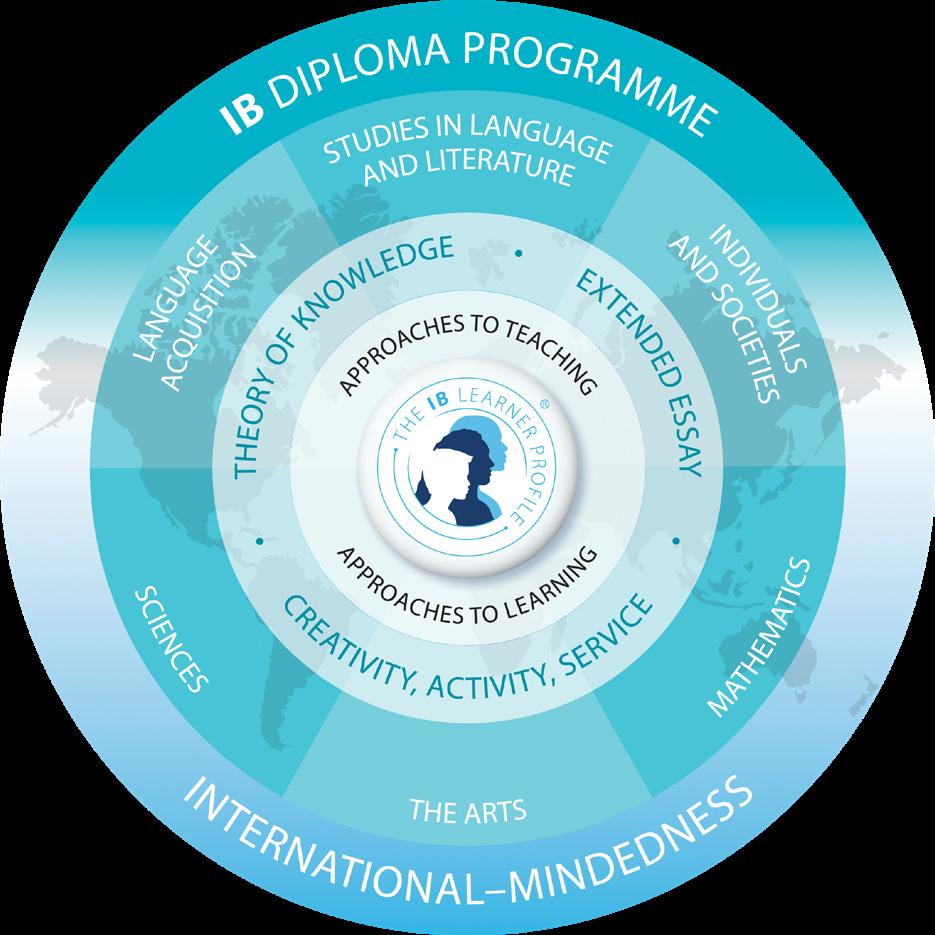
IVANHOE GRAMMAR SCHOOL 6
Figure 1: IB Diploma Model
Theory of Knowledge (ToK)
TOK is a course about critical thinking and inquiring into the process of knowing, rather than about learning a specific body of knowledge. It is a core element which all IB Diploma students undertake and to which all schools are required to devote at least 100 hours of class time. TOK and the IB Diploma subjects should support each other in the sense that they reference each other and share some common goals. The TOK course examines how we know what we claim to know. It does this by encouraging students to analyse knowledge claims and explore knowledge questions.
Extended Essay (EE)
The extended essay is an in-depth study of a focused topic normally chosen from one of the student’s six chosen subjects, or a subject that a student has a background in. It is intended to promote academic research and writing skills, providing students with an opportunity to engage in personal research in a topic of their own choice, under the guidance of a supervisor. This leads to a major piece of formally presented, structured writing, in which ideas and findings are communicated in a reasoned and coherent manner, appropriate to the subject chosen. It is mandatory that all students undertake three reflection sessions with their supervisor, which includes a short, concluding interview, or viva voce, with their supervisor following the completion of the extended essay.
Successful completion:
The Extended Essay is externally assessed by the IB and can be up to 4000 words.
Creativity, Activity, Service (CAS)
CAS is at the heart of the Diploma Program. With its holistic approach, CAS is designed to strengthen and extend students’ personal and interpersonal learning.
CAS is organised around the three strands of creativity, activity and service defined as follows:
• Creativity – exploring and extending ideas leading to an original or interpretive product or performance.
• Activity – physical exertion contributing to a healthy lifestyle.
• Service – collaborative and reciprocal engagement with the community in response to an authentic need.
Successful completion:
• The CAS program formally begins at the start of the IB Diploma and continues regularly for at least 18 months with a reasonable balance between creativity, activity, and service.
Successful completion:
There are two assessment tasks in the TOK course: an essay and an exhibition.
• The essay is externally assessed by the IB, and must be on any one of the six prescribed titles issued by the IB for each examination session. The maximum word limit for the essay is 1,600 words.
• The exhibition requires students to participate in an exploration of TOK. A cross between an oral presentation and an expo, students are required to respond to a prompt, provided by the IB, using three artefacts which demonstrate TOK in the real world.
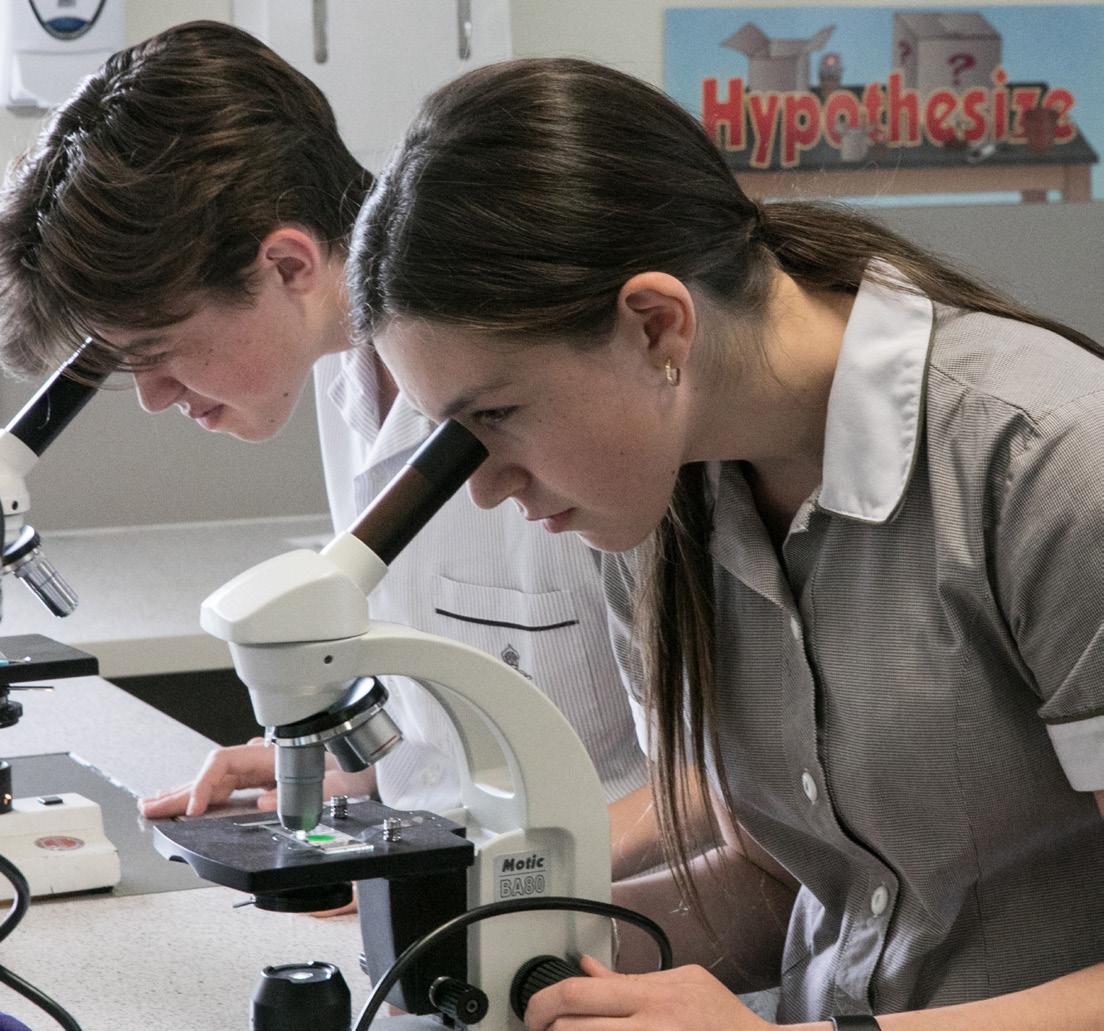
• All CAS students are expected to maintain and complete a CAS portfolio as evidence of their engagement with CAS.
• Achievement of the seven CAS learning outcomes (this should be evident in their CAS portfolio).
• Engage in CAS experiences involving one or more of the three CAS strands. A CAS experience can be a single event or may be an extended series of events.
• Students undertake a CAS project of at least one month’s duration that challenges students to show initiative, demonstrate perseverance, and develop skills such as collaboration, problem-solving, and decision-making. The CAS project can address any single strand of CAS, or combine two or all three strands.
• There are three formal documented interviews students must have with the CAS coordinator.
INTERNATIONAL BACCALAUREATE HANDBOOK 7
Alumni Advice and reflection
From Ivanhoe Grammar School IB alumni to prospective IB Diploma students:
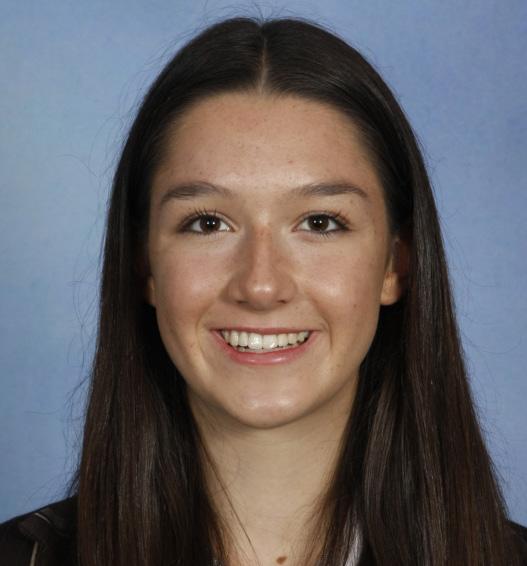
Aleah Kink (Class of 2017)
Definitely choose the IB! Although it may seem daunting, trust me that nothing else will better prepare you for university than the IB. It was such a rewarding experience as not only did I learn a breadth of knowledge and get a chance to explore ideas and activities outside the classroom, but I also became close friends with the entire IB cohort due to the immense support we shared throughout Year 11 and 12. The EE taught me to be resilient as a result of the long and somewhat stressful drafting process, and allowed me to explore personal interests. I would never have had the opportunity to interview local members of the community and really analyse the immense contributions of refugees within Australia, had it not been for the EE experience. In addition, it forced me to balance my time throughout Year 12.
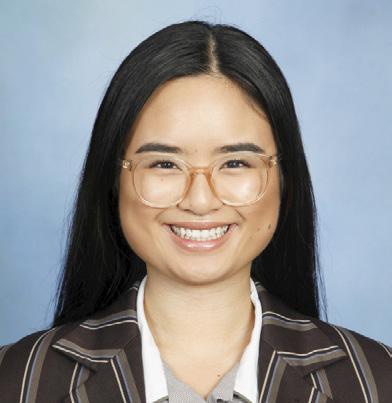
Haleena Nguyen (Class of 2020)
'The best thing about Year 12 would have to be spending time with my amazing IB cohort. Since we spent most of the year online, being able to see each other in person again reminded me that the best part of the high school experience is not what you learn, but who you meet. I could not have made it through 2020 without the support of my close friends and my teachers. The year 2020 taught me to value the people in my life so much more. It also taught me the importance of slowing down and to prioritise my mental and physical health above all else. I think the challenges of completing the IB in 2020 made me more resilient, patient, and far more grateful for all that I have.'
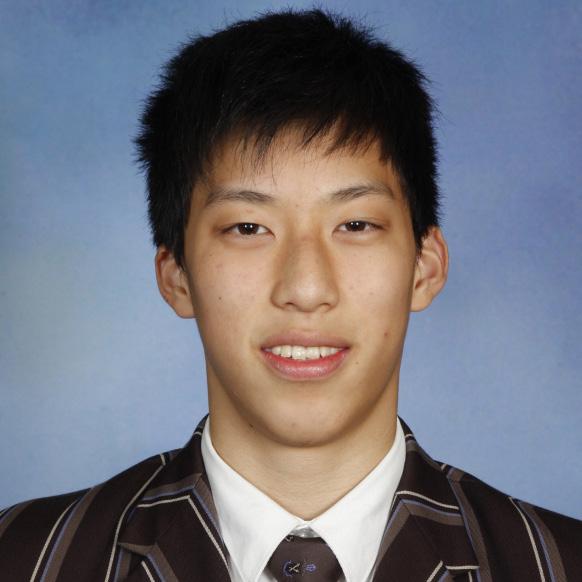
Kevin
Wu
(Class of 2016)
The EE experience introduced me to academic writing. Conducting research and looking into peer reviewed sources from academic journals was a skill that proved to be invaluable during my studies at university. It also taught me the importance of consistently doing work every day to complete tasks of a heavy volume.
 Jack Brenton (Class of
Jack Brenton (Class of
2017)
'Definitely give IB a go because it really helps your orgaanisational and academic skills in the long run. The EE experience taught me how to effectively conduct research and how to write a university-style academic essay. Knowing how to properly find and reference sources has been a vital skill after Year 12.
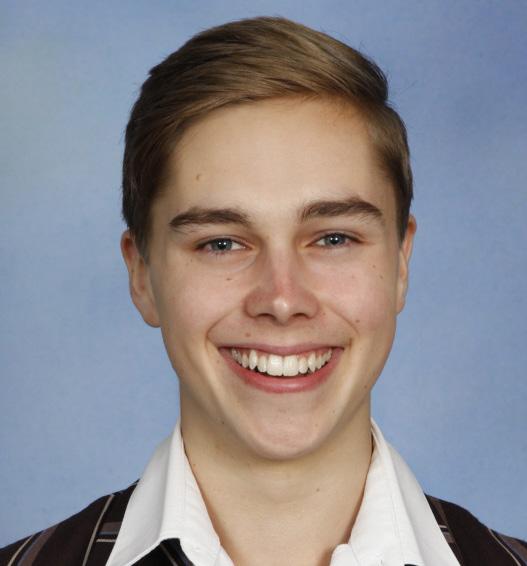
Will
Smith
(Class of 2017)
If you are researching something that you are interested in, 4000 words isn’t enough!
IVANHOE GRAMMAR SCHOOL 8
Thoughts on subject selections...
Which CAS Experience Did You Enjoy the Most?
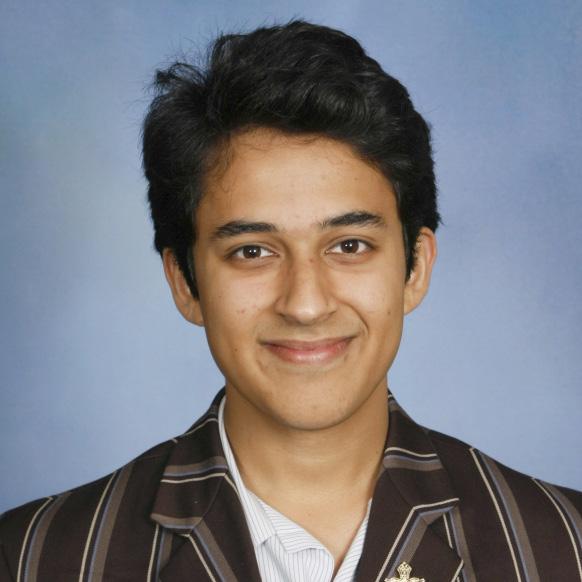
Rohan Gandhi (Class of 2020)
My favourite CAS experience would have to be my involvement with the 300 Blankets Outreach program, Soul Kitchen. These initiatives provided me with extensive exposure to the prominent global issue: homelessness. I highly recommend that every student participates in this incredible program and gain some insight into the implications homelessness has on people in our society. My realisation that homelessness can arise due to many different reasons, some which are not within the individuals’ control (for example, domestic violence, lack of access to education, low financial upbringings, and many more) has significantly changed my perception of those who are less fortunate and has really helped in shaping the person I am today. This initiative inspired my friends and I to produce a short film on this global issue as a part of our CAS Project.
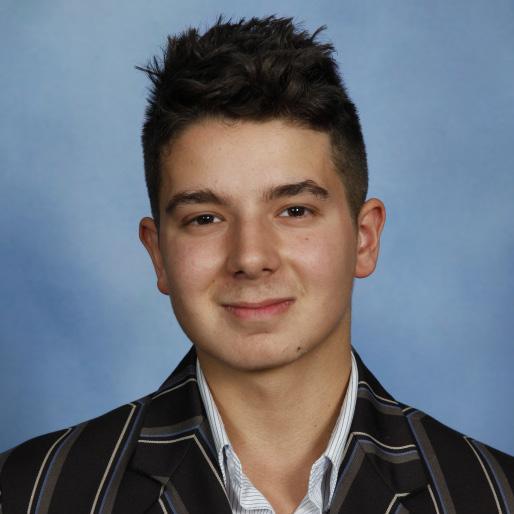 Matthias Lillis (Class of 2023)
Matthias Lillis (Class of 2023)
For my major CAS project, I created and published a cookbook with my family’s traditional recipes.
I found this to be an incredibly rewarding experience. Not only did I learn how to cook delicious traditional Greek food, but I was able to spend time with my grandparents and learn more about our culture. The cookbook turned out amazing. It is a beautiful artifact, and the book is something my family will pass on to future generations.
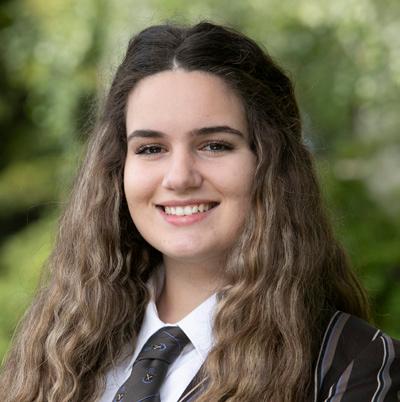
Georgia McLaughlin (Class of 2018)
I chose to do the IB program with Higher level Physics, Biology and Psychology, and Standard Level Literature, French and Maths. I knew from the very beginning that the IB was going to allow me to do all the subjects I love, whilst still catering to the wellrounded side of my learning that I’ve always valued so much. The promised challenge of the program made it even more desirable and the past two years have certainly been nothing but challenging and definitely fun and exciting.

Luke Gullone (Class of 2021)
I chose the subjects, English Literature SL, French B SL, Psychology SL, Physics HL, Chemistry HL and Maths AA HL. Being someone who really enjoys all things STEM, these Higher Level subjects enabled me to delve deeper into subjects that I am genuinely interested in and to study at a level that only the IB could provide. The broadbased nature of the IB Diploma also allowed me to discover a passion for certain subjects that I did not expect to find interesting, but quickly became very enjoyable.
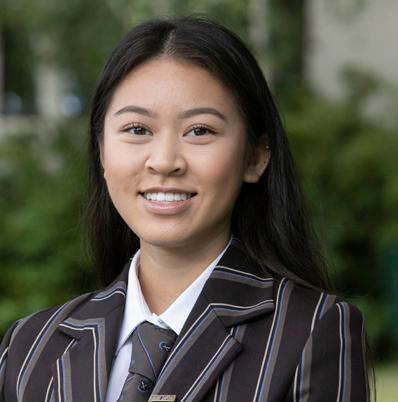
Chelsea Huynh (Class of 2018)
I did the following IB subjects: Literature, Maths Studies, History, Psychology, Indonesian, and Sports, Exercise & Health Science. The reason why I picked History, Psychology and Sports Science was because I had a genuine interest in them, especially from the content which I had learnt in Year 10 and 11. I felt that it was important to pick subjects that I would genuinely enjoy to make the two years of IB not so difficult. Initially I had picked Biology; however I did not find the content was for me. When I made the switch to Sports, Exercise & Health Science, I found the classes much more enjoyable and I had a genuine interest in the subject.
INTERNATIONAL BACCALAUREATE HANDBOOK 9
IB Diploma Subjects
Offered at Ivanhoe Grammar School for 2024-2025
Group 1 Studies in Language and Literature
Language A (First Language)
Group 2
Language Acquisition
Language B and ab initio
Group 3 Individuals and Society
Group 4 Sciences
Group 5 Mathematics
Group 6 The Arts (or an elective)
English A Literature
Chinese A Literature
English B
Indonesian ab initio SL
Spanish B
Business Management
Economics
History
Psychology
Biology
Chemistry
Physics
Language and Culture SL (pilot course)
French B
Chinese B (Mandarin)
Environmental Systems and Societies
Language and Culture SL (pilot course)
Sports, Exercise and Health Science
Environmental Systems and Societies
Mathematics: Analysis and Approaches
Mathematics: Applications and Interpretation SL
Visual Arts
Or another subject from a different group (Ivanhoe students usually choose from Groups 3 or 4)
Subjects offered at Standard Level (SL) only, have SL next to the subject. All other subjects are offered at Higher or Standard Level.
*Actual subjects taught in a particular year will depend on demand and resources.
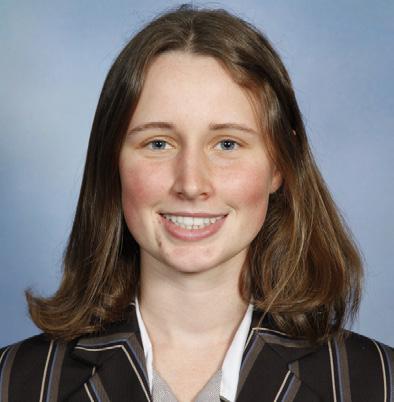 Jess Hooker (Class of 2023)
Jess Hooker (Class of 2023)
The time I spent completing the IB is truly a contender for the best years of my life. It was challenging, definitely, but also a shared adventure full of experiences which bound our unassuming cohort of less than 30 into a wonderful and supportive community of passionate, mature and hardworking young people. As a student who has always enjoyed learning for its diversity and scope, I loved that the IB celebrated the study of a range of subjects, allowing me to engage with my interest in science, my fascination with maths, my love of Chinese and my passion for history and literature all simultaneously. Within each of these subjects, I had the privilege of being able to work on internal assessments and an extended essay, projects I was able to spend months and months planning, researching, drafting, redrafting and editing. Surprisingly, this opportunity was really a gift in disguise, as behind the late nights and the writers blocks and the many bouts of frustration was the freedom to do something that felt significant, pieces of work that I care about and that are important to me even still. It is these core elements of the IB and the experiences, more so than the knowledge, that I gained from it that shaped, quite honestly, the best years of my life.
IVANHOE GRAMMAR SCHOOL 10
How is work assessed?
The International Baccalaureate assesses student work as direct evidence of achievement against the stated goals of the IB Diploma courses.
IB Diploma assessment procedures measure the extent to which students have mastered advanced academic skills in fulfilling these goals, for example:
• Analysing and presenting information
• Evaluating and constructing arguments
• Solving problems creatively
Basic skills are also assessed, including:
• Retaining knowledge
• Understanding key concepts
• Applying standard methods
In addition to academic skills, IB Diploma assessment encourages an international outlook and intercultural skills, where appropriate.
All subjects have an internal component and an external component. The internal component varies from subject to subject and could involve the development of portfolios, essays, oral presentations, etc. The external assessment component in most subjects are the November examinations at the end of Year 12, unless a student anticipates a subject, in which case the final examination would be in November of Year 11 or May of Year 12.
Criterion-based assessment is used for all subjects and each subject is graded on a scale of 1 (minimum) to 7 (maximum). Each grade represents a range of marks that varies slightly from subject to subject and year to year.
Up to three additional points can be gained on the performance in the Extended Essay (EE) and Theory of Knowledge (ToK), while Creativity, Activity, Service (CAS) must be completed satisfactorily. The award of the IB Diploma requires a minimum of 24 points (with a maximum of 45 points).
The following failing conditions apply to IB Diploma students:
• CAS requirements have not been met.
• Student’s total points are fewer than 24.
• An 'N' has been given for Theory of Knowledge, Extended Essay or for a contributing subject.
• An 'E' grade has been awarded for one or both of Theory of Knowledge and the Extended Essay.
• There is a grade 1 awarded in a subject/level.
• Grade 2 has been awarded three or more times (HL or SL).
• Grade 3 or below has been awarded four or more times (HL or SL).
• Student has gained fewer than 12 points on HL subjects (for candidates who register for four HL subjects, the three highest grades count).
• Student has gained fewer than 9 points on SL subjects (candidates who register for two SL subjects must gain at least 5 points at SL).
• Student has received a penalty for academic misconduct from the final award committee.
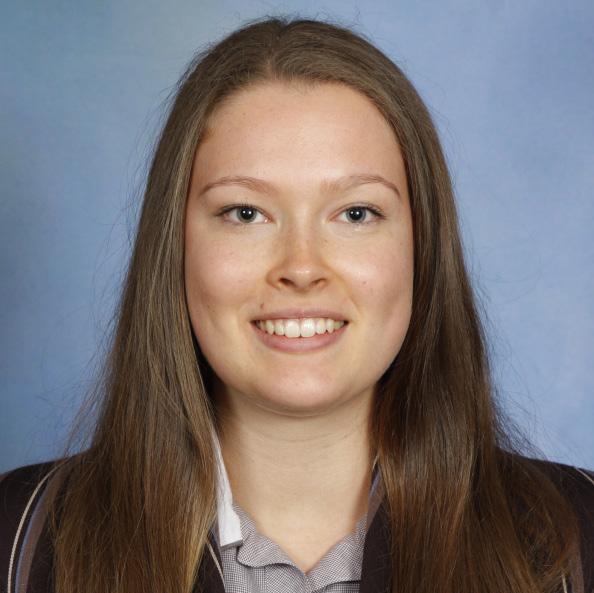
Leyden (Class of 2016)
'If you're interested in studying a broad range of subjects with a more global focus, and are willing to put in the work required to succeed, then the IB is a very rewarding course.'
INTERNATIONAL BACCALAUREATE HANDBOOK 11
TOK/EE A B C D E A 3 3 2 2 B 3 2 2 1 C 2 2 1 0 D 2 1 0 0 E FAILING CONDITION
Figure 2: The IB Diploma Points Matrix for the Theory of Knowledge and Extended Essay
Olivia
University Options and Pathways
Why do universities value IB students?
• IB students are prepared for academic success.
• IB students are more likely than others to enrol in and graduate from selective higher education institutions.
• Based on their experiences, IB students possess a broader range of skills that enhance their ability to adapt and contribute to university life.
• IB students demonstrate a level of emotional and intellectual maturity for managing the demands of challenging coursework and making meaningful contributions.
• They have extensive experience in undertaking independent research and presenting what they have learned through presentations, papers and other projects.
• They think critically and draw on diverse perspectives that reflect an international outlook.
• Participation in the IB Diploma shows that students have excelled in multiple and diverse academic challenges, which is a strong predictor for success in university.
Although most Ivanhoe Grammar School IB Diploma graduates choose Australian universities, they can gain admission to universities throughout the world. Some colleges and universities offer advanced standing or course credits to students with strong IB results.
In Victoria, IB students are assigned a Notional Australian Tertiary Admission Rank (ATAR) score awarded on the basis of their Diploma results. This is the same ATAR that VCE students achieve. The ATAR equivalents are presented by a Conversion Table produced each year.
 Will Smith (Class of 2017)
Will Smith (Class of 2017)
The IB is a great program that prepares you for university in a way that VCE can’t. You have to be willing to put in the work, but the rewards are more than worth it.
The fine-grained ATAR calculation
The formula used to calculate IB students’ notional ATAR changed for the graduating Class of 2022 (commencing university in 2023). Rather than converting students’ IB score (out of 45) to an ATAR, their performance in each subject, and subsequent score, is now taken into account before an IB Admission Score is calculated. The IB Admission Score now adds decimal places to a student’s diploma score based on their average performance within each subject. The IB Admission Score does not change a student’s IB result nor dramatically change their ATAR, it simply gives VTAC and universities the ability to distinguish between students at the lower, mid or upper range of an IB score.
The proposed fine-grained ATAR:
The ATAR conversion table is not published until early Term 2 of students’ final year of the Diploma. The table (on page 13) is simply a guide, which has been adapted from resources published by the Universities Admissions Centre (UAC), to indicate how the fine-grained ATAR looked for the IB Class of 2023.
Figure 3 (page 13) Column key:
A IB score
B IB Admission Score
C Example of the fine-grained ATAR based on the Class of 2023's conversion
Figure 3 Source:
Improving Uni Entry for IB Students (follow the link to ‘Presentation for Schools’ at the bottom of the page);
URL: https://www.uac.edu.au/future-applicants/admission-criteria/ ib-applicants/improving-uni-entry-ib-students
IVANHOE GRAMMAR SCHOOL 12
INTERNATIONAL BACCALAUREATE HANDBOOK 13 A B C 45 45.75 99.95 45.50 99.95 45.25 99.85 45.00 99.80 44 44.75 99.75 44.50 99.70 44.25 99.55 44.00 99.45 43 43.75 99.35 43.50 99.25 43.25 99.10 43.00 99.00 42 42.75 98.90 42.50 98.80 42.25 98.60 42.00 98.45 41 41.75 98.30 41.50 98.15 41.25 97.90 41.00 97.70 40 40.75 97.50 40.50 97.30 40.25 97.05 40.00 96.80 39 39.75 96.55 39.50 96.35 39.25 96.05 39.00 95.80 38 38.75 95.55 38.50 95.30 38.25 95.00 38.00 94.75 37 37.75 94.50 37.50 94.25 37.25 93.90 37.00 93.55 36 36.75 93.20 36.50 92.85 36.25 92.50 36.00 92.15 35 35.75 91.80 35.50 91.50 35.25 91.15 35.00 90.80 A B C 34 34.75 90.45 34.50 90.15 34.25 89.65 34.00 89.20 33 33.75 88.75 33.50 88.30 33.25 87.80 33.00 87.30 32 32.75 86.80 32.50 86.30 32.25 85.80 32.00 85.30 31 31.75 84.80 31.50 84.30 31.25 83.80 31.00 83.35 30 30.75 82.85 30.50 82.40 30.25 81.80 30.00 81.25 29 29.75 80.65 29.50 80.10 29.25 79.50 29.00 78.95 28 28.75 78.35 28.50 77.80 28.25 77.20 28.00 76.65 27 27.75 76.10 27.50 75.55 27.25 74.90 27.00 74.25 26 26.75 73.60 26.50 73.00 26.25 72.30 26.00 71.60 25 25.75 70.90 25.50 70.25 25.25 69.65 25.00 69.05 24 24.75 68.45 24.50 67.85 24.25 67.10 24.00 66.35
Figure 3: Proposed fine-grained ATAR.
Class of 2023 IB Results
In 2023, a number of Year 12 students at Ivanhoe Grammar School chose to undertake the well-respected International Baccalaureate (IB) to expand their options for tertiary education. The dedication and hard work for these students were realised in early January 2024 with the release of the IB results. Congratulations to all students, we are extremely proud of their achievements. In particular, we would like to congratulate our IB Dux, Mei Gethen who achieved an ATAR 98.80, which places Mei in the top 1.2% of the State.
IB scores have converted to impressive ATAR equivalents.
Fifty-six percent of subject scores were perfect IB grades of 6 and 7 (highest possible grades). 56% IB
Class of 2023 IB Dux
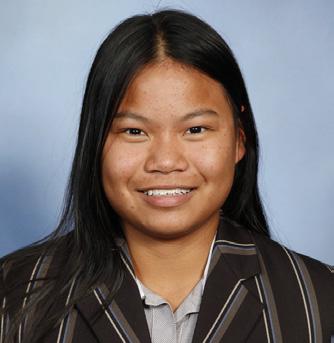 MEI GETHEN
MEI GETHEN
INTERNATIONAL BACCALAUREATE DUX
ATAR: 98.80
What is it really like to study the International Baccalaurate?
The IB is a roller-coaster, and it taught me so many important skills that has transferred to life beyond the program. It pushed me to achieve beyond what I ever thought I was capable, and even now it’s still surreal to say that I completed the IBDP. What I valued most were the lifelong relationships formed during the program. I will always cherish the countless class
discussions and inside jokes that brought the IB cohort together. Embarking on this journey alongside some of my closest friends where we shared tears and laughter over unwritten IAs and failed exams, along with genuinely supporting one another when we finally received a 7 on an essay made the IB seem less intimidating. Along with the friendships with classmates, I hugely valued the teacherstudent relationship I had in all my classes. I found that their endless support helped me believe in myself and meant I felt comfortable
The IB median ATAR is an impressive 91.5 and 85 percent of the IB Class of 2023 achieved an ATAR above 80. 85%
walking into the final exams. In terms of the course itself, I loved how we were given the opportunity to study some of the subjects at a higher level as it helped deepen my understanding of each subject. I found that rather than just studying for an assessment, it felt like there was a real purpose of learning interesting information and producing work of which I still am genuinely proud.
IVANHOE GRAMMAR SCHOOL 14
HIGHEST POSSIBLE ATAR 99.95 MEDIAN IB DIP. ATAR 91.5 IB DIPLOMA MEDIAN ATAR
ATAR EQUIVALENT
IB
80+ 90+ 95+ 38.5% 60% 85% ATAR
HIGH ACHIEVERS 80+ ATAR
Alumni Profiles
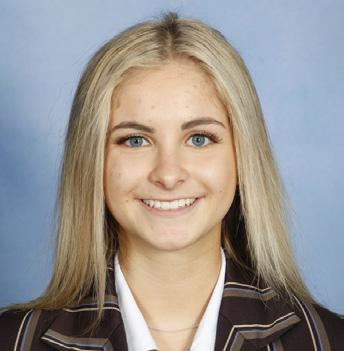 Jess Del Brocco Class of 2022
Jess Del Brocco Class of 2022
The IB ensured that I studied a wide range of subjects, which allowed me to explore my passions and provided me with a broad outlook and global perspective. The IB cohort fosters a very tightknit student community where intellectual debates and conversations are encouraged by all in a supportive and collaborative environment. This in turn generates a large supportive network to overcome the challenges and maintain motivation during the toughest years of high school.
Subject Scores:
Theory of Knowledge oral presentation:
Prompt: Can new knowledge change established values or beliefs?
Extended Essay subject and question:
Subject: Sports, Exercise and Health Science. Question: To what extent is the talent transfer from basketball to netball successful in adolescent female athletes?
Where to next?
Bachelor of Biomedicine at The University of Melbourne.
How did the IB prepare you for University?
The IB curriculum is academically challenging and without a doubt requires good time management skills. It also develops your critical thinking and collaboration skills in the fostering of a social learning environment which are integral to thrive at university. Through the development of these skills in the IBDP over the past two years the transition from Year 12 into university was seamless. I feel well equipped to take the next challenges and exciting steps in my education and learning journey and am very grateful for the opportunity to have undertaken the IBDP.
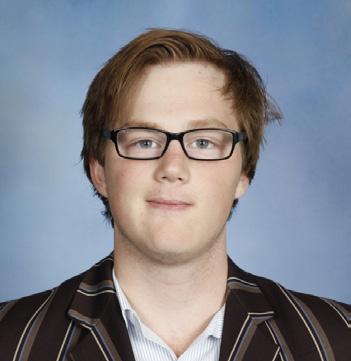 Bill Furler Class of 2019
Bill Furler Class of 2019
The IB was fundamental not just to learning and studying the broad range of subjects which I chose, but also important in learning the necessary skills for my current course. Work-life balance and time management, healthy studying skills and habits, and strong academic resilience were just some of the many outcomes which made the IB worth it.
Subject Scores:
Theory of Knowledge oral presentation:
How does fear influence shared knowledge?
Extended Essay subject and question:
History; To what extent was the polarized world after World War Two responsible for the outbreak of the Vietnam War?
Where to next?
Bill is currently studying a Bachelor of Software Engineering at RMIT.
How did the IB prepare you for University?
Among the many ways in which the IB succeeds in preparing one for university is academic resilience. The ways in which the IB pushes its candidates to their academic limits can be intimidating, yet by doing so I can say that every member of my cohort has developed a great level of both control and confidence in themselves and their abilities. To transition into the often self-guided and high work-demand life of university with such a skill has not only made the experience smoother, but much more enjoyable.
INTERNATIONAL BACCALAUREATE HANDBOOK 15
Subject Group # Subject and Level Score Group 1 English A Literature (HL) 7 Group 2 Indonesian ab initio 6 Group 3 Business Management (HL) 7 Group 4 Chemistry (SL) 5 Group 5 Mathematics Analysis and Approaches (SL) 6 Group 6 or an elective Sports, Exercise and Health Science (HL) 7 Core Points TOK and EE 2
Subject Group # Subject and Level Score Group 1 English A Literature (HL) 7 Group 2 French B (SL) 4 Group 3 History (HL) 5 Group 4 Chemistry (HL) 4 Group 5 Mathematics (SL) 6 Group 6 or an elective Physics (SL) 5 Core Points TOK and EE 2
Alumni Profiles
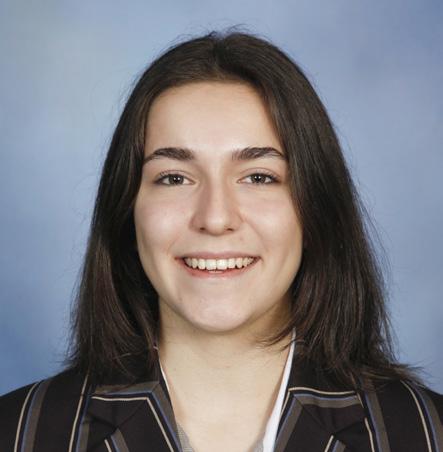
For me, the IB program was a supportive and immersive program that helped me become a truly well-rounded learner. The committed teaching staff and motivated student peers that participate in the IB create a wonderful learning environment that makes getting through the toughest years of high school a team effort. The IB also fosters an increase in world knowledge, critical thinking, and co-curricular participation, all resulting in a rewarding experience and easier transition into university-style learning.
Subject Scores:
Theory of Knowledge oral presentation:
Does literature provide us with first-person knowledge of other minds?
Extended Essay subject and question:
English Literature; How do Patricia Highsmith and James Baldwin interrogate 1950s American masculinity in The Talented Mr Ripley and Giovanni’s Room?
Where to next?
Bella is currently studying a Bachelor of Biomedicine at the University of Melbourne.
How did the IB prepare you for University?
Most importantly, the IB has taught me to learn independently and manage my time as effectively as possible. I’ve also noticed that the program has put me ahead in terms of academic skills, such as essay writing, referencing, and scholarly research. So far into my biomedicine course, I’ve found lots of cross-over in my core content with my IB subjects, so the transition to university learning was made much smoother.
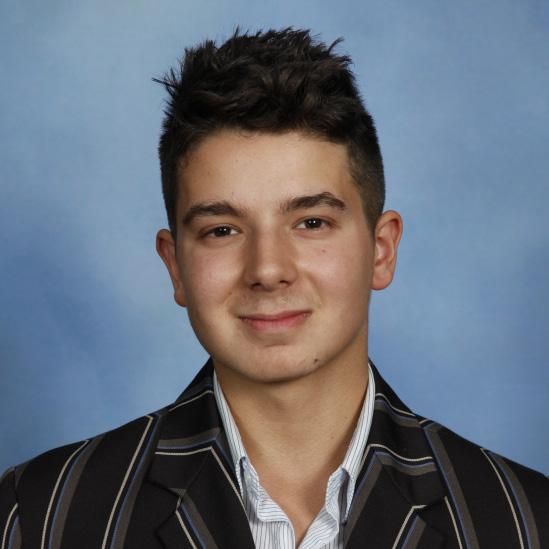
Over the course of the program, I learnt how to prioritise and best manage my time, keeping a balance between academics and other commitments. The IB program gave me the opportunity to explore topics I was interested in whilst going out of my comfort zone in other areas and assessments.
Subject Scores:
Theory of Knowledge Essay Question:
In the acquisition of knowledge, is following experts unquestioningly as dangerous as ignoring them completely? Discuss with reference to the human sciences and one other area of knowledge.
Theory of Knowledge Exhibition Prompt:
How might the context in which knowledge is presented influence whether it is accepted or rejected?
Extended Essay subject and question:
To what extent has Amazon’s corporate culture and leadership enhanced their performance and impacted their reputation?
Where to next?
Matthias is currently studying a Bachelor of Commerce at The University of Melbourne
How did the IB prepare you for University?
Studying in the IB program requires students to take responsibility for their own learning and this allowed me to learn the importance of organisation whilst building my independent studying skills, something that is important for university. Additionally, the nature of the Individual Assessments in the IB taught me how to go through the academic writing process, from research through to a completed report, which has provided me valuable skills that will be essential for university.
IVANHOE GRAMMAR SCHOOL 16
Isabella Lessene Class of 2021
Matthias Lillis Class of 2023
Subject Group # Subject and Level Score Group 1 English A Literature (HL) 7 Group 2 French B (SL) 7 Group 3 History (SL) 6 Group 4 Biology (HL) 7 Group 5 Mathematics AA (HL) 5 Group 6 or an elective Chemistry (SL) 7 Core Points TOK and EE 3
Subject Group # Subject and Level Score Group 1 English A Literature (HL) 6 Group 2 Indonesian AB Initio SL 6 Group 3 Business Management HL 7 Group 4 Chemistry SL 7 Group 5 Mathematics AA (SL) 6 Group 6 or an elective Biology (HL) 6 Core Points TOK and EE 3
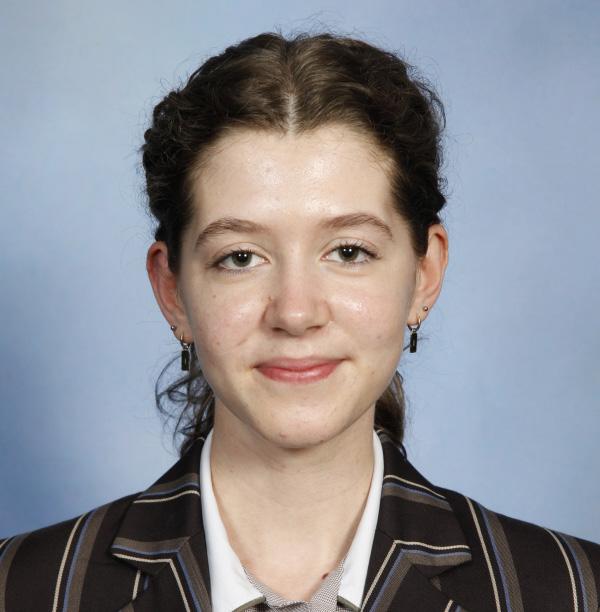
Isabel Smith Class of 2023
I believe that the IB has taught me how to think critically, stay organized, and actively engage in my own learning. While the course can be challenging, requiring independent work and for students to be curious and flexible in their thinking, I believe its rigorous nature was helpful in pushing me to explore the areas of study that interest me most and to become invested in my own learning. The IB allows students the autonomy to focus on their preferred subjects whilst also providing exposure to diverse areas of study and a global perspective. I believe it creates worldly, well-rounded and curious learners, and has helped me to grow both in and out of the classroom.
Subject Scores:
Theory of Knowledge Exhibition:
What is the relationship between knowledge and culture?
Extended Essay subject and question:
English A Literature: How is Sally Rooney’s Normal People a critique of postmodern capitalism?
Where to next?
Isabel is currently studying a Bachelor of Arts at The University of Melbourne.
How did the IB prepare you for University?
The IB requires independence and self-discipline from the very beginning of year 11, and those who excel in the program are generally those who can manage their time and stay organized even during periods with heavy workloads. The course is almost completely self-driven, and in this way acts as excellent preparation for university life. The Extended Essay also acts as a valuable introduction into planning, essay-writing and referencing skills.
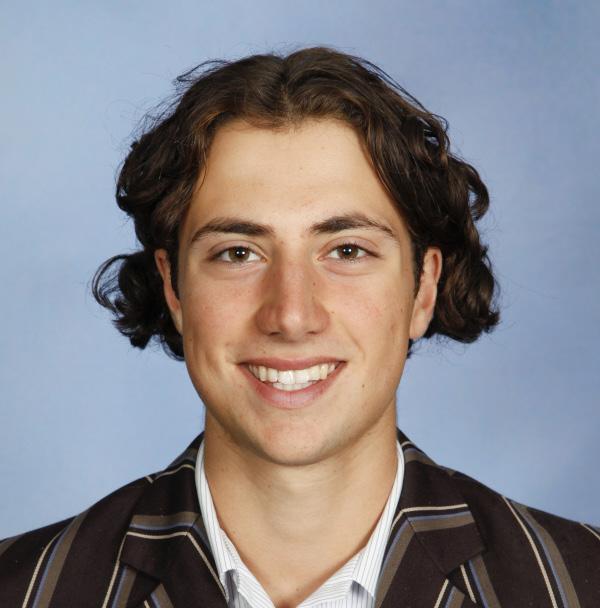
Tom Mileto Class of 2022
I learnt that the chief virtues for an IB learner are patience, consistency and being well-organised. The second lesson I learnt was that success is only a slight mental switch away. From a student who struggled in the early parts of the course, it took self-belief to commit to each subject and not accept it was ‘too hard’. Once this positive mindset was harnessed, my motivation skyrocketed and results followed.
Subject Scores:
Theory of Knowledge oral presentation:
Can new knowledge change established views and beliefs?
Extended Essay subject and question:
Sports Exercise and Health Science HL: How does a Cricketer’s aerobic capacity influence their ability to repeatedly selectively attend to correct cues?
Where to next?
Tom is currently studying a Bachelor of Commerce course at Melbourne University, majoring in Finance and Economics. Then a Juris Doctor (law) degree at Melbourne University.
How did the IB prepare you for University?
Put simply, the IB exposed me to a higher level of critical thinking and application than any of my non IB university student cohort. The IB prompted me to tackle complex theories, and as such, IB students are equipped with the processes and models to analyse and interpret these ideas. The varied IB subjects and tasks develop the skills and knowledge needed to succeed in competitive university courses. IB produces versatile students who are ready to tackle an ever-changing, fast-paced and increasingly globalized world.
INTERNATIONAL BACCALAUREATE HANDBOOK 17
Subject Group # Subject and Level Score Group 1 English A Literature (HL) 6 Group 2 French 6 Group 3 Psychology (HL) 7 Group 4 Chemistry (SL) 7 Group 5 Mathematics: Analysis and Approaches (SL) 6 Group 6 or an elective Visual Arts 6 Core Points TOK and EE 3
Subject Group # Subject and Level Score Group 1 English (HL) 6 Group 2 Sport Science (HL) 7 Group 3 Economics (HL) 7 Group 4 Maths AA (SL) 7 Group 5 Indonesian Ab initio (SL) 7 Group 6 or an elective Biology (SL) 7 Core Points TOK and EE 2
Parent Perspectives
Anthony and Christine Filippis; parents of Annaliese Filippis (Class of 2019)
'When our daughter, Annaliese was in Year 10, she expressed an interest in the IB program after hearing about it at school. We both didn’t really know a lot about it, so we attended a parent information session held by the school that explained both the VCE and IB programs, differences between the two and how they were run at school.
The IB program is focused on developing students’ ability to think independently and fosters the skills for lifelong learning. While IB is an academically rigorous course, the favourable ATAR conversion takes this into account and students really are rewarded for the hard work.
The IB program at Ivanhoe is well established and provides students with a great support structure. The teachers were all so helpful – which was greatly appreciated especially during IA (internal assessment) and exam time. The IB cohort of students all developed strong friendships and it was great to see them all support each other through their challenges and celebrate their successes.
The course provided a well-rounded education and has allowed Annaliese to develop life-long skills that will be beneficial throughout her university studies and beyond. Congratulations to Ivanhoe for implementing such a rewarding program, we are truly grateful for the opportunity!'
Sage Mileto: Parent of Tom Mileto (Class of 2022) and Harley Mileto (Class of 2024)
Both of my sons made the decision to study the IBDP. When my eldest son expressed an interest in the IB, we, as a family, knew very little about it. After researching it together, meeting with the IB coordinator, he decided, it was what he wanted to do. Quite simply, he knew it was the course that would ‘get the best out of him’.
The IBDP appealed to Tom, as the program covered a broad range of subjects, had a global focus, smaller classes and would best prepare him for his future endeavors, whatever they might be. He was prepared to commit to it wholeheartedly and see what he could achieve. I initially thought the undertaking may prove too arduous, especially given Tom’s commitment to high level sport, but he proved that organization, hard work and effective time management can achieve outstanding results.
After seeing how much my eldest son enjoyed the IB, my youngest son, Harley, decided, he too, to take up the challenge of the IBDP.
As a parent supporting children studying IB, it was, and still is, my goal to provide them with a stable and warm environment, so they can strive for whatever they desire to achieve. I believe that if there is a safe base beneath, they can hopefully stretch that bit further to achieve their ultimate goals, as there is no fear of falling and not being caught.
Dr. Chris Gliddon; father of Olivia Gliddon (Class of 2019)
'Olivia agonised over the choice between IB and VCE. Ultimately, she chose IB, and being both a hard worker and a high achiever I was very comfortable with her decision. I was attracted to the concept of critical thinking, the analysis and appraisal of knowledge and the breadth of the curriculum.
There is a need for self-discipline and effective time management in order to manage the very heavy workload and Olivia, early on, recognised that the latter was her weakness. To her credit and with the guidance of her teachers she was able to greatly improve in this area without totally sacrificing a social life and enjoyment of co-curricular activities.
The IB Diploma is a very challenging program, however, the end justifies the means and not just in the academic sphere. It is particularly pleasing that the cohort, being much smaller than the VCE, developed camaraderie and an ethos of helping one another. Without the burden of ranking, IB students are able to develop a cooperative study atmosphere to a large degree.
Olivia, unhesitatingly, is so pleased she chose the IB and so am I.
Thankyou IGS for providing the program and thank you for the efficient implementation and dedication shown by all the staff involved.'
Carolyn and Aris Theocharides;
parents of Stella Theocharides (Class of 2019)
'As someone who has always loved writing essays, Stella was confident that she’d be able to handle the heavy written component of the IB. It was one of the reasons we were so happy to support her on this journey.
The nature of the program also appealed – broad based in its curriculum, an international approach, and opportunities for students to really direct their own learning and follow their individual lines of enquiry. It’s wonderful to let them have the opportunity to really take control of their learning. We were particularly impressed with the collaborative nature of the program. Everyone supported each other, shared information, mentored one another. And that’s just the students! The teachers, needless to say, were outstanding. We really felt as though Stella was being properly equipped for university, and we are so grateful that she had the chance to study the IB.'
IVANHOE GRAMMAR SCHOOL 18
Fiona Matheson; mother of Hamish Matheson (Class of 2018)
'My youngest child was somewhat sceptical before commencing the IB due to its reputation for being a challenge and his lack of confidence in not being 'top of the class' or an 'A+' student. However, after due consideration, he was attracted to the program because it allowed him to study specific elements within each subject that interested him… it became evident that the myth or stigma surrounding the IB as an option reserved for the academic elite was defeated.'
Ian and Janene Worsam; parents of Jet Worsam (Class of 2019)
'IB was completely new and unfamiliar to us as a family and to be honest, as parents, we really had no idea! Jet showed a genuine interest, so we started to look closely at what suited him and his learning style. After many discussions we decided the IB was the right pathway for him. This was based on the understanding of how he presented as a learner, what made him tick and what inspired and motivated him.
IB has a diverse teaching/learning structure that suited Jet’s thirst for knowledge. Jet loved to 'dive in deep' – the in-depth exploration of subject areas played to his strengths in terms of really getting down to the nitty gritty.
From our experience as parents watching from the bleachers, IB is an enormous amount of work. There is certainly no 'down time'; students need to maintain a constant work ethic as it is an absolutely jam-packed course. The standard of work produced was exceptional.
And in saying this, all credit to the amazing staff at IGS in terms of the support structure for IB students.'
Sue O’Callaghan; mother of Amelia Upperton (Class of 2017)
'My daughter learned to be a thorough scholar with a truly world view on the many subjects she studied. She learned to read widely and critically before forming an opinion. Importantly for tertiary study, she learned the value of referencing her opinions and adhering to an evidencebased approach to her studies.'
Paul and Lindy McShanag-Munn; parents of Noah McShanag-Munn (Class of 2018)
'Ivanhoe Grammar’s support for social justice and academic effort is brought together seamlessly in the IB program…'
Dr Kathleen Ryan; mother of Sinead KershawRyan (Class of 2016)
'I think the IB is for motivated students, who start researching their extended essay before the start of Term 1 and know how not to fall behind.
The extended essay, on any topic whatsoever, says a great deal about the overall intention of the IB. That is: 'you are the learner, what do you want to know more about?' This also applies to the student generated topics within history, maths and chemistry. The range of topics students came up with was amazing!
I think the research angle of the IB and the self-motivation requirement gels very well with university expectations. The amount of oral presentations are a bonus too as the students become very familiar with public speaking and that is a real asset.'
Parent of a past IB Diploma graduate
'I remain a strong supporter of the Diploma Program generally and as an option at IGS. In my professional judgement, it remains the optimum senior schooling curriculum option…
The requirement to study a range of disciplines (2nd languages, maths, science, humanities et al) along with mandated tertiary foundation skills and disciplines (ToK / Extended Essay / CAS) ‘taught’ my son and all DP graduates that a ‘broad liberal education’ requires fundamental and explicit components that provide the basis of western educational tradition. With these components, he has learned pre-requisite skills of successful tertiary study alongside the capacity and resilience to study not only subjects he ‘likes’ or at which he is ‘good’ at – as a 16/17 year old – but also skills that do not come easily but must be learned. It is upon these learned behaviours that the older adolescent and adult, who finds success at university and in life-long learning, often depends.
The IB DP remains the optimum senior secondary qualification, of those of which I am aware, for Australian secondary graduates intending to attend university in Australia or overseas. This is because it requires students to develop skills and learning which the VCE and other State certificates does not require or do not require to the same extent. The top one or two percent of academic students will achieve success regardless of the certificate they study; however, I believe the IB DP particularly maximises or amplifies the ATAR outcomes of those students in the 75.0095.00 range, in particular.'
INTERNATIONAL BACCALAUREATE HANDBOOK 19
Frequently Asked Questions
Will studying the IB be an advantage to me at university?
Yes, absolutely. The IB will help prepare you for university. For example, the experience of the Extended Essay is excellent grounding for tertiary studies.
Are some subjects scaled up or down like in the VCE?
No. Every subject in the IB is regarded as equal. It doesn’t matter whether you get a 6 in Higher Level Physics or a 6 in Indonesian ab initio – the grades are treated as equal. This means you don’t have to choose subjects because you think it will be scaled up. You can choose subjects because you’re interested in them.
Does a grade of 7 mean you get a perfect score?
Remember that a grade of ‘7’ does not mean that you got a perfect score. It means that you scored in the highest grade boundary for that subject.
Can I study the IB if I didn’t study a language in Year 9 or Year 10?
Yes. You can study a beginner’s language. Indonesian ab initio is for students who have not studied Indonesian before. Everyone in the class is essentially a beginner with the language.
When do I have to choose my Higher Level subjects?
You don’t need to make this decision until midway through Year 11.
Can you fail the IB Diploma?
Yes, it is possible to fail an IB Diploma. For example, if you get less than 24 points you do not get your Diploma. You will, however, be awarded an IB Certificate. There are a number of other failing conditions (refer to the failing conditions previously outlined in this booklet). You should speak to Mr Nick Mercer (IB Coordinator) if you are worried about this.
Can I get into university if I fail to get the IB Diploma?
Few fail the IB Diploma. If you do, it is still possible to get into a tertiary course. If you have questions about the IB and tertiary pathways, be sure to arrange a meeting with Ms Daniela Curcio (Director of Student Futures) to explore your options.
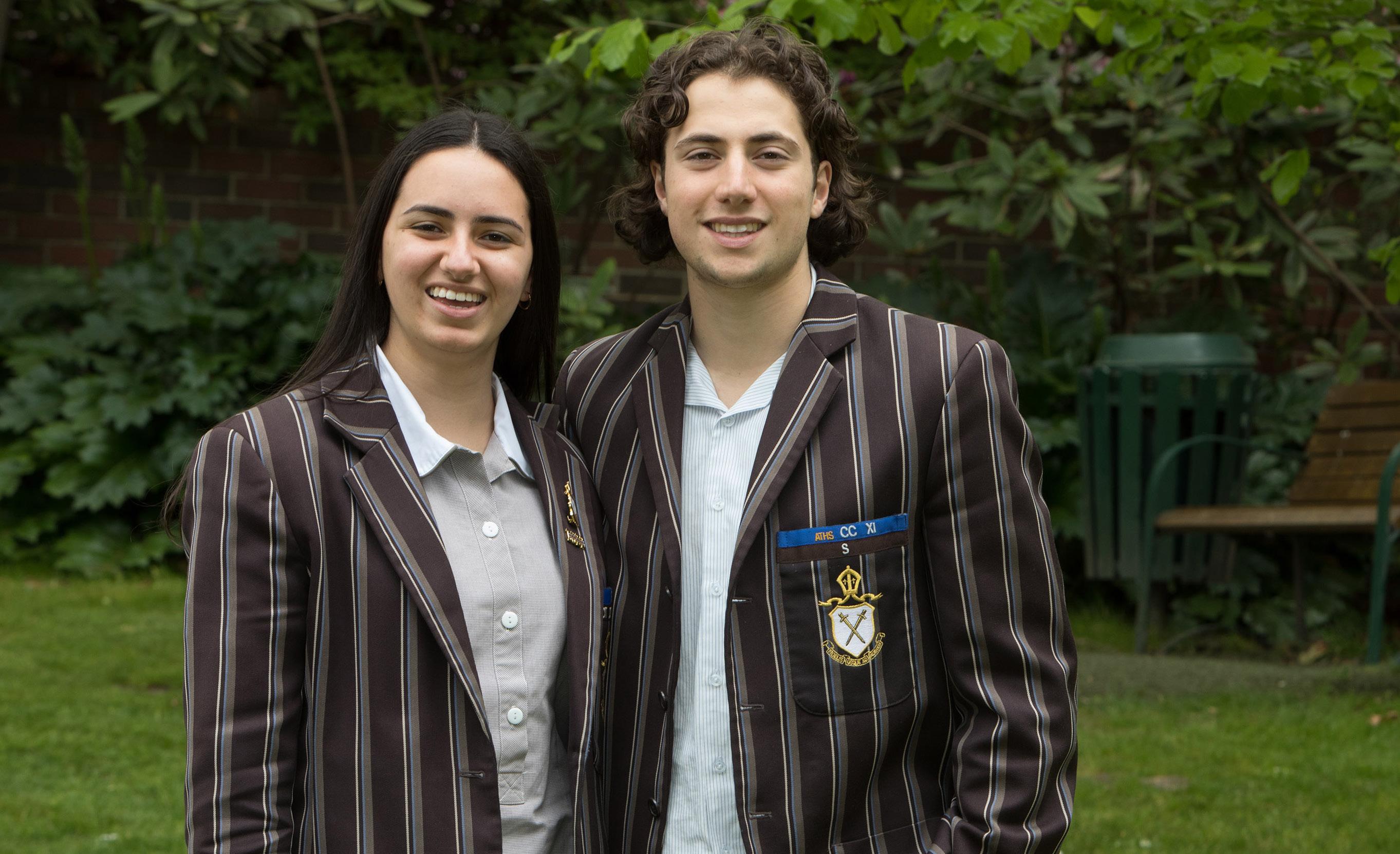
A ‘life learner’ is forever exploring, growing and improving.
Gerard Foley, Principal
IVANHOE GRAMMAR SCHOOL 20
INTERNATIONAL BACCALAUREATE HANDBOOK 21
IVANHOE GRAMMAR SCHOOL 22
INTERNATIONAL BACCALAUREATE HANDBOOK 23
Mr Nicholas Mercer
IB Coordinator, Ivanhoe Grammar School e nicholas.mercer@ivanhoe.com.au ph +61 3 9490 1880 www.ivanhoe.com.au/ib
Further information can be found at: www.ibo.org Be sure the information you’re reading relates to the Diploma Program (Years 11 & 12).
IVANHOE GRAMMAR SCHOOL 24
100% recycled paper










 Jack Brenton (Class of
Jack Brenton (Class of


 Matthias Lillis (Class of 2023)
Matthias Lillis (Class of 2023)



 Jess Hooker (Class of 2023)
Jess Hooker (Class of 2023)

 Will Smith (Class of 2017)
Will Smith (Class of 2017)
 MEI GETHEN
MEI GETHEN
 Jess Del Brocco Class of 2022
Jess Del Brocco Class of 2022
 Bill Furler Class of 2019
Bill Furler Class of 2019




